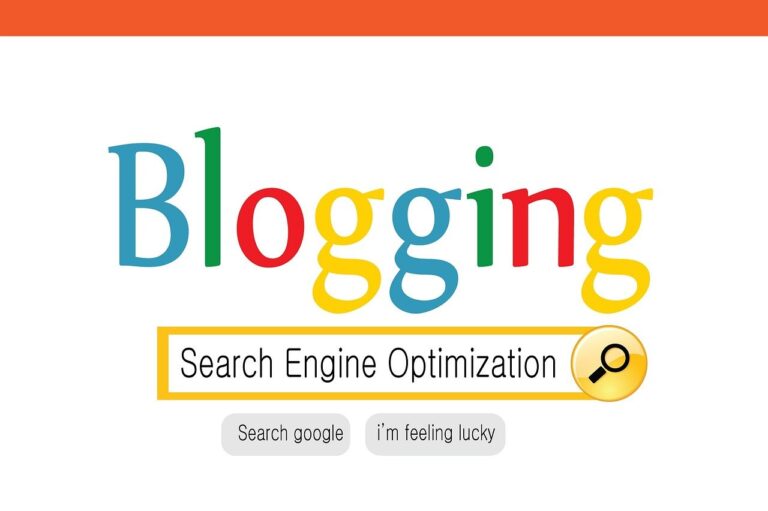Understanding the Importance of Keyword Research in Holistic Health
Keyword research is crucial for holistic health practitioners to connect with potential clients online. It helps optimize digital marketing efforts and improves visibility in search results.
The Role of Keywords in Digital Marketing
Keywords act as bridges between your holistic health services and those seeking them online. They are the terms and phrases people type into search engines when looking for health solutions.
By incorporating relevant keywords into your website content, blog posts, and ads, you increase your chances of appearing in search results.
Long-tail keywords make up about 70% of all searches. These are more specific phrases that often indicate higher intent from searchers.
For example, instead of “healthy eating,” a long-tail keyword might be “gluten-free meal plans for weight loss.”
To effectively use keywords:
- Research popular terms in your niche
- Analyze search volume and competition
- Integrate keywords naturally into your content
Why Holistic Health Practitioners Need Keyword Research
As a holistic health practitioner, keyword research helps you understand your target audience’s needs and preferences. It reveals the language they use when searching for health solutions, allowing you to tailor your messaging accordingly.
Proper keyword research can:
- Improve your website’s search engine rankings
- Attract more qualified leads to your practice
- Help you create content that resonates with potential clients
Mental health keywords, for example, can be particularly impactful when chosen carefully. They can guide your content creation and help you reach individuals seeking specific mental health support.
By investing time in keyword research, you ensure your holistic health services are discoverable by those who need them most. This targeted approach can lead to increased client engagement and practice growth.
Identifying Niche-Specific Keywords

Identifying the right keywords for your holistic health practice is crucial for attracting potential clients. Focus on terms that resonate with your specific audience and services to improve your online visibility.
Understanding Your Niche and Audience
Start by clearly defining your holistic health niche. Are you a nutritionist, acupuncturist, or wellness coach? Each specialty has unique terminology.
Consider your ideal client’s characteristics, concerns, and search habits. What problems are they trying to solve? What questions might they ask online?
Create buyer personas to represent your target audience. Include demographics, interests, and health goals. This will help you brainstorm relevant keywords.
Tools for Finding Niche Keywords
Several tools can help you discover niche-specific keywords:
- Google Keyword Planner: Free tool for search volume and competition data
- SEMrush: Offers keyword suggestions and competitor analysis
- Ahrefs: Provides detailed keyword metrics and content ideas
Use these tools to expand your initial keyword list. Look for terms with moderate search volume and low competition.
Consider local SEO if you have a physical practice. Include location-based keywords to attract nearby clients.
Long-Tail Keywords and Their Importance
Long-tail keywords are longer, more specific phrases. They typically have lower search volume but higher conversion rates.
Examples for holistic health:
- “natural remedies for chronic fatigue”
- “holistic approach to stress management”
- “organic herbs for digestive health”
Focus on long-tail keywords to attract clients actively seeking your services. These searchers often have higher intent and are more likely to book appointments.
Incorporate long-tail keywords into your website content, blog posts, and service descriptions. This helps you rank for specific queries and attract qualified leads.
Analyzing Search Intent

Understanding search intent is crucial for attracting the right clients to your holistic health practice. It helps you create content that meets their needs and aligns with their expectations.
Types of Search Intent
Search intent typically falls into four categories: informational, navigational, commercial, and transactional.
Informational searches seek knowledge about holistic health topics. Navigational searches look for specific websites or resources. Commercial intent involves comparing options or products. Transactional searches aim to make a purchase or book a service.
For holistic health, informational searches might include “benefits of acupuncture” or “how to reduce stress naturally.” Navigational searches could be “Dr. Smith holistic practitioner.” Commercial intent might involve “best herbal supplements for sleep.” Transactional searches could include “book yoga class near me.”
How to Determine Search Intent for Holistic Health Keywords
To identify search intent, examine the search results for your target keywords. Look at the types of content ranking on the first page. Are they blog posts, product pages, or service listings?
Pay attention to the language used in titles and meta descriptions. Words like “how to” or “guide” suggest informational intent. “Buy” or “book now” indicate transactional intent.
Consider the searcher’s stage in their health journey. Are they just starting to explore holistic options or ready to commit to a treatment?
Use keyword research tools to gather data on search volume and related queries. This can provide insights into what users are looking for.
Aligning Content with Search Intent
Once you’ve identified the search intent, create content that matches it.
For informational queries, provide detailed, educational content about holistic health topics. Use clear explanations and cite reputable sources.
For commercial intent, offer comparisons of different holistic treatments or products. Highlight the unique benefits of your services.
Address transactional intent with clear calls-to-action and easy booking options. Ensure your website is optimized for local searches if you have a physical practice.
Regularly analyze keyword metrics and adjust your content strategy as needed. User intent can change over time, so stay flexible and responsive to shifts in search patterns.
Incorporating Keywords into Website Content

Effective keyword integration enhances your holistic health website’s visibility and attracts potential clients. Strategic placement and natural usage of keywords across your site’s elements are crucial for improving search rankings and user experience.
On-Page SEO Best Practices
Focus on incorporating keywords naturally throughout your webpage content. Place primary keywords in the first 100 words of your text to signal relevance to search engines.
Use header tags (H1, H2, H3) strategically to organize content and include keywords where appropriate.
Optimize image alt text with descriptive, keyword-rich phrases. This improves accessibility and provides context for search engines.
Internal linking is vital. Link to relevant pages on your site using anchor text that includes targeted keywords. This helps search engines understand your site structure and content relationships.
Ensure your website is mobile-friendly and loads quickly. Search engines favor sites that provide a good user experience across all devices.
Creating Keyword-Rich Content
Develop high-quality, informative content that naturally incorporates your target keywords.
Focus on long-tail keywords specific to holistic health services to attract more qualified leads.
Create blog posts, articles, and service pages that address common questions and concerns of your target audience. Use keywords in a way that feels natural and adds value to the reader.
Implement a content calendar to consistently produce fresh, keyword-optimized content. This signals to search engines that your site is active and relevant.
Consider creating pillar pages that cover broad topics in-depth, linking to more specific cluster content. This structure helps establish topical authority and improves your site’s overall SEO performance.
Using Keywords in Meta Descriptions and Titles
Craft compelling meta titles and descriptions that include your target keywords.
Meta titles should be under 60 characters, while meta descriptions should be 150-160 characters long.
Ensure each page on your site has a unique meta title and description. This helps search engines understand the content of each page and improves click-through rates from search results.
Include your primary keyword near the beginning of your meta title for maximum impact. In the meta description, use natural language to accurately summarize the page content while incorporating relevant keywords.
Use modifiers like “best,” “top,” or “guide” in your meta titles to target long-tail variations of your keywords and improve click-through rates.
Monitoring and Adapting Your Keyword Strategy

Keeping your keyword strategy current is crucial for attracting holistic health clients. Regular tracking, analysis, and adjustments ensure your content remains visible and relevant in search results.
Tools for Tracking Keyword Performance
Google Search Console provides valuable insights into your website’s search performance. It shows which keywords drive traffic to your site and their average positions in search results.
SEMrush and Ahrefs offer comprehensive keyword tracking features. These tools allow you to monitor rankings over time and compare your performance against competitors.
Google Analytics helps you understand how visitors interact with your site after clicking through from search results. Analyze metrics like bounce rate and time on page to gauge the effectiveness of your keyword targeting.
Adjusting Your Strategy Based on Analytics
Review your keyword performance data regularly, ideally monthly. Identify keywords that are performing well and those that need improvement.
For underperforming keywords, consider:
- Optimizing existing content
- Creating new, targeted content
- Adjusting your meta titles and descriptions
Look for new keyword opportunities related to trending holistic health topics. Incorporate these into your content strategy to stay ahead of the curve.
Pay attention to user intent. Ensure your content aligns with what searchers are looking for when using specific keywords.
Staying Updated with SEO Trends in Holistic Health
Follow reputable SEO blogs and industry publications to stay informed about algorithm updates and best practices. Websites like Search Engine Journal and Moz regularly publish helpful articles.
Attend webinars and conferences focused on SEO for health and wellness businesses. These events often provide valuable insights and networking opportunities.
Join online communities and forums where SEO professionals discuss trends and share tips. Reddit’s r/SEO and LinkedIn groups can be great resources.
Monitor your competitors to identify new keyword opportunities and content ideas. Tools like SEMrush’s Organic Research feature can help you track their keyword rankings and content strategies.
Frequently Asked Questions

Effective keyword research is crucial for holistic health professionals to attract clients and improve online visibility. The right strategies and tools can significantly enhance your digital marketing efforts.
What are the best strategies for conducting keyword research in the holistic health industry?
Focus on long-tail keywords that target specific holistic health niches. Use keyword tools to identify terms with moderate search volume and low competition.
Analyze competitor websites to discover keywords they’re ranking for. Consider seasonal trends and emerging topics in holistic health to stay ahead.
How can I identify the most effective keywords for a holistic health services website?
Start by brainstorming a list of services you offer and common client concerns. Use keyword research tools to expand this list and find related terms.
Look for keywords with clear intent that align with your expertise. Prioritize terms that have a good balance of search volume and competition level.
What tools are recommended for finding SEO keywords related to spirituality and wellness?
Google Keyword Planner is a free tool that provides valuable insights. Paid options like SEMrush and Ahrefs offer more comprehensive data and competitor analysis.
You can also use Answer the Public to find question-based keywords. For identifying rising topics, use Google Trends.
How do I optimize my YouTube channel for health and wellness content through keyword research?
Use YouTube’s search suggestions to find popular health and wellness topics. Analyze top-performing videos in your niche to identify effective keywords.
Incorporate relevant keywords in your video titles, descriptions, and tags. Create content around long-tail keywords to target specific audience segments.
In what ways can keyword research for health and fitness improve my website’s search engine visibility?
Identifying and targeting the right keywords helps search engines understand your content’s relevance. This can lead to higher rankings for specific search queries.
Using keywords naturally in your website copy, meta descriptions, and headers improves your chances of appearing in relevant searches. It also helps attract more qualified traffic.
What process should you follow to determine the most impactful keywords for a healthy lifestyle brand?
First, define your brand’s unique value proposition and target audience. Next, research industry trends and popular health topics to identify relevant keywords.
Then, use keyword tools to analyze search volume and competition. After that, test different keywords in your content and monitor their performance. This will help you refine your strategy over time.






